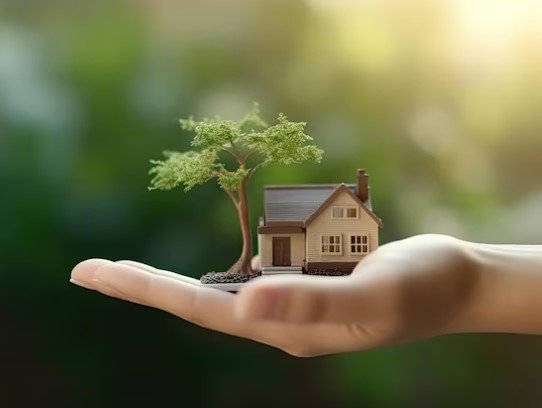
Innovative Trends Shaping the Future of Real EstateInnovative Trends Shaping the Future of Real Estate
Introduction
The real estate industry has always been a cornerstone of economic growth and development. In recent years, however, the sector has undergone a profound transformation driven by technological advancements, changing consumer behaviors, and global economic shifts. As we look towards the future, several innovative trends are emerging that promise to reshape the landscape of real estate. These trends are not just temporary shifts but are expected to have long-lasting impacts on how properties are bought, sold, and managed. In this article, we will explore the key innovative trends that are shaping the future of real estate and what they mean for industry stakeholders.
Technological Advancements in Real Estate
Technology has become the bedrock of modern real estate, influencing everything from property search to transaction processes. The integration of advanced technologies, including QR codes, is streamlining operations, enhancing customer experiences, and providing new opportunities for real estate professionals.
Artificial Intelligence and Big Data in Real Estate
Artificial intelligence (AI) and big data are transforming how real estate companies analyze markets, forecast trends, and understand customer preferences. AI algorithms can analyze vast amounts of data to provide insights into property values, market trends, and even potential investment opportunities. Big data, on the other hand, allows for a more granular analysis of market conditions, enabling real estate professionals to make more informed decisions.
Virtual and Augmented Reality in Property Viewings
Virtual reality (VR) and augmented reality (AR) are revolutionizing the way properties are showcased. Potential buyers and renters can now take virtual tours of properties from the comfort of their homes. This technology not only saves time but also allows for a more immersive experience, where clients can visualize living in the space without being physically present.
Blockchain Technology and Real Estate Transactions
Blockchain technology is set to disrupt real estate transactions by introducing a new level of transparency, security, and efficiency. Smart contracts on blockchain platforms can automate and secure property transactions, reducing the need for intermediaries like brokers and notaries. This innovation is expected to lower transaction costs and increase trust among parties involved.
Sustainable and Eco-Friendly Developments
As awareness of climate change and environmental sustainability grows, there is an increasing demand for eco-friendly real estate developments. Sustainable building materials, energy-efficient designs, and green certifications are becoming essential features of modern properties.
Green Building Materials and Technologies
The use of sustainable materials like bamboo, recycled steel, and low-emission concrete is becoming more prevalent in real estate developments. These materials not only reduce the carbon footprint of construction but also contribute to healthier living environments.
Energy-Efficient Homes and Smart Grids
Energy efficiency is no longer a luxury but a necessity in modern real estate. Smart home technologies, including smart thermostats, energy-efficient lighting, and solar panels, are becoming standard in new developments. Additionally, the integration of smart grids allows for better management of energy resources, reducing overall consumption and costs.
Urbanization and the Rise of Smart Cities
Urbanization is accelerating, with more people moving to cities than ever before. This trend is driving the development of smart cities that use technology to improve the quality of life for residents. Smart cities are characterized by the use of IoT devices, data analytics, and AI to optimize urban infrastructure and services.
Smart Infrastructure and Transportation Systems
Smart cities are built on the foundation of smart infrastructure, which includes intelligent transportation systems, efficient waste management, and sustainable energy solutions. These systems are designed to enhance urban living by reducing congestion, lowering pollution, and improving public services.
Mixed-Use Developments and Community Living
The concept of mixed-use developments is gaining popularity as it aligns with the needs of modern urban dwellers who seek convenience and a sense of community. These developments combine residential, commercial, and recreational spaces into a single area, fostering a vibrant and integrated community life.
Remote Work and Its Impact on Real Estate
The rise of remote work, accelerated by the COVID-19 pandemic, has had a profound impact on real estate. As more people work from home, the demand for certain types of properties has shifted, with a growing preference for homes that offer dedicated office spaces and proximity to amenities.
Redefining Office Spaces
Office spaces are being reimagined to accommodate the new hybrid work model. Flexible workspaces, coworking spaces, and office buildings with advanced technology are becoming more common. Companies are also investing in wellness-oriented office designs that promote health and productivity.
Suburban Growth and the Shift from Urban Centers
The trend of urban-to-suburban migration is gaining momentum as remote work allows people to live further from their workplaces. Suburban areas are seeing increased demand for housing, leading to a boom in suburban real estate development. This shift is also prompting a reevaluation of urban planning and infrastructure development in these regions.
PropTech: The Rise of Real Estate Technology Startups
PropTech, short for property technology, refers to the application of technology in the real estate sector. PropTech startups are innovating in various areas, including property management, investment platforms, and real estate marketplaces, making it easier for consumers and investors to navigate the market. The Best CRM for Real Estate Investors can complement these innovations by simplifying client interactions and optimizing investment management processes.
Real Estate Crowdfunding Platforms
Real estate crowdfunding platforms are democratizing access to property investments. These platforms allow individuals to invest in real estate projects with lower capital requirements, opening up new opportunities for investors who were previously priced out of the market.
Smart Property Management Solutions
Property management is becoming increasingly digitized, with smart solutions that streamline operations and enhance tenant experiences. From automated rent collection to AI-driven maintenance requests, technology is making property management more efficient and cost-effective.
Impact of Demographic Changes on Real Estate
Demographic shifts, such as aging populations and changing family structures, are influencing real estate trends. Developers and investors are adapting to these changes by creating properties that cater to the needs of different demographic groups.
Aging Population and Senior Housing
The aging population is driving demand for senior housing and assisted living facilities. Developers are focusing on creating age-friendly communities that offer healthcare services, accessibility features, and social activities to cater to the needs of older adults.
Millennials and Gen Z: Shaping the Future Market
Millennials and Gen Z are emerging as the dominant forces in the real estate market. These generations prioritize flexibility, sustainability, and technology in their housing choices. As a result, developers are increasingly focusing on creating properties that appeal to these tech-savvy and environmentally conscious consumers.
Read also: Top Recruitment Tips for Finding the Best Talent
Conclusion
The future of real estate is being shaped by a combination of technological advancements, demographic changes, and evolving consumer preferences. As these trends continue to unfold, the real estate industry will need to adapt and innovate to meet the demands of a rapidly changing market. Whether it’s through the adoption of sustainable building practices, the integration of smart technologies, or the development of new business models, the future of real estate promises to be dynamic and full of opportunities. Those who embrace these innovations will be well-positioned to thrive in the years to come.




